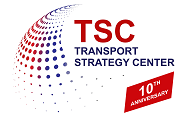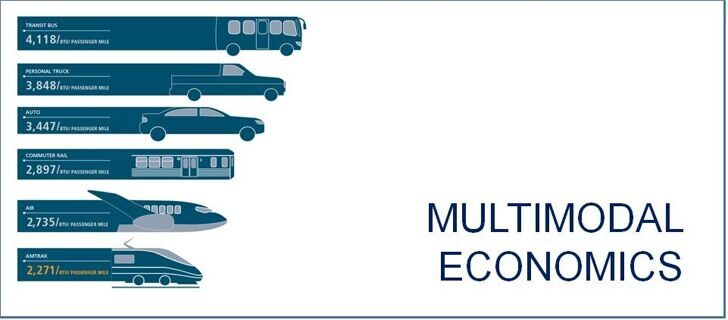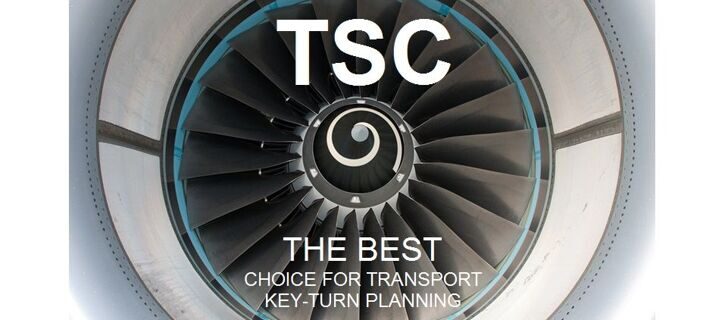THE RESULTS OF THE XI EURASIAN INTERNATIONAL FORUM UNMANNED AVIATION - 2024 HAVE BEEN SUMMED UP
« BackOn April 19, 2024, the XI Eurasian International Forum Unmanned Aviation - 2024 took place in Moscow.
The Unmanned Aviation Forum - 2024 once again confirmed the status of the main international industry event in the field of UAS in the Eurasian space, in which organizations from Russia and the Eurasian region traditionally took part.
Unmanned Aviation - 2024 is the largest Eurasian international business platform for professional discussion of global trends and innovative solutions, issues of legal and technical regulation of unmanned aircraft systems.
The forum Unmanned Aviation - 2024 was attended by representatives of the Ministry of Transport of the Russian Federation, the Ministry of Industry and Trade of the Russian Federation, the Federal Security Service of the Russian Federation, the Ministry of Internal Affairs of the Russian Federation, the Ministry of the Russian Federation for Civil Defense, Emergency Situations and Disaster Relief, and the Federal Air Transport Agency , Rostransnadzor and other federal authorities, representatives of national authorities of the EAEU countries, representatives of the Rostec State Corporation, Gazprom Neft, Roshydromet, Russian Post, Rostelecom, representatives of UAS manufacturers and their components, developers of digital solutions in the field of UAS, industry associations, leading scientific- research organizations, media.
The forum included plenary and thematic sessions on current issues in the field of unmanned aircraft, as well as an exhibition and presentation of innovative domestic products from enterprises in the unmanned aircraft systems industry.
During the forum in a special zone, experts could familiarize themselves with advanced practical cases of the development of the UAS industry on different continents.
Based on the results of the plenary session, thematic sessions, as well as a special panel discussion dedicated to discussing decision issues that, both strategically and in the short term, can lead to increased efficiency in the development of the UAS industry, a number of opinions from key experts were expressed.
In particular, during the panel discussion, experts noted:
Anton Vladimirovich Koren, head of the TSC Consortium, head of the TSC Consortium.
“In recent years, the TSC Consortium has been designing and pre-designing droneports - equipped landing sites for UAS. TSC determines areas for the deployment of drone ports on the basis of comprehensive marketing research into the demand for UAS services in all segments, as well as taking into account extensive experience in designing aviation infrastructure facilities.
I would like to note that in this direction, at a minimum, the development of high-quality standards and methodological recommendations for equipping drone ports with almost all types of infrastructure and equipment is required, because many regions approaching this issue do not know what to start with first. As part of the development of a practical school of design, it is necessary to solve these methodological problems.
It is also important to note that one of the key issues that arises when creating a new drone port is the issue of communication, providing communications. It is imperative to work to develop systematized, uniform standards and solutions for the entire industry.
These issues are resolved by the TSC already at the stage of pre-project, feasibility study, and when packaging investment projects, including on PPP terms.”
Kukarev Sergey Viktorovich, head of department at JSC GLONASS:
“One of the first steps seems to be the publication of temporary flight rules for unmanned aircraft, where it is clearly stated who is doing what.
The second step is to ensure the visibility of manned aircraft, which will necessarily install transponders, the signal from which operators of unmanned aircraft will be able to see and predictively respond to emerging conflicts in the air.
And the most important point is to move on to organizing intersectoral cooperation.”
Khursevich Sergey Nikolaevich, Advisor to the Governor of the Tomsk Region:
“The first task is to intensify trial operation before making any decisions, because today, even in the definition of unmanned aircraft systems, I counted a dozen different decisions of the same status, which directly contradict each other, not to mention the standards that are being adopted - these are GOSTs, educational standards, airworthiness standards. They are accepted without practical testing and, as a result, the chance of error becomes very high.
The second position, which from my point of view is now extremely important, is to begin testing quasi-dispatcher flight control beyond the line of sight. The fact that they are now allowed to fly blind from the station is quite a bold step.
The third component is to start thinking now about the topics of experiments and simplification of regulation in terms of ground infrastructure and in terms of ensuring transport security.”
Baryshnikov Denis Borisovich, General Director, BAS Consortium:
“We need to solve the complex problem of communication, which we started talking about today in all segments of its application. This will give us a solution to most problems related to monitoring and controlling drones. The main condition for the transition to such control systems is the presence of legally approved regulations and communication channels in those territories where drones are operated.
One of the key cost sections for the cost of a flight hour is personnel. Removing remote pilots from the drone's take-off and landing site will seriously improve the economics and create specialization of the technical personnel who provide line maintenance of the drones and the remote pilot, who creates all pre-flight preparation, monitors the flight and works with all the authorities involved in the drone's flight mission.”
Voronov Vladimir Vladimirovich, head of the advanced research department, Ural Civil Aviation Plant (UZGA):
“I would suggest slowing down the expansion of UAS projects. I mean, new technologies in which it is necessary to build trust, and trust can only be formed through positive operating experience. Therefore, in this part you need really positive systematic, even systematic operating experience.
For example, the transportation of a significant amount of cargo, so that this is confirmed by both the contractor and the customer, and this experience is already disseminated and promoted in order to build trust, first of all, among the consumer and among those people over whom the UAS will fly.”
Miroshnichenko Anastasia Aleksandrovna, Head of the Executive Committee of the Council for Professional Qualifications of Air Transport, Director of the Association of Aviation Personnel:
“We need to very quickly standardize the experience we receive. An experimental legal regime is needed to gain experience and subsequent standardization. It is also very important to observe the development of the industry in other countries. It is necessary to study how the qualification system is developing abroad and how it is structured, and to carefully monitor what is happening in China and the USA. Monitor the development of the qualification system in China in more detail and exchange experiences, including working with international recognition of qualifications.”
Avershin Vadim Sergeevich, leading analyst, Aeroskript Research Center:
“Today, many experimental legal regimes (ERRs) continue to open up that allow commercial work to be carried out by a drone weighing more than 30 kg, but what happens after that?
Requirements for communication and navigation technologies and conflict avoidance technologies for small and medium-sized UAS must be formulated.
Also, the federal authorities of the Russian Federation need to develop a unified strategy for analyzing the results of the EPR and systematizing the results obtained.”
As part of the XI Eurasian International Forum “Unmanned Aviation - 2024”, the Award Ceremony of the Eurasian Prize in the field of unmanned aircraft systems (UAS) was held.
The following organizations became laureates of the Eurasian Prize in the field of unmanned aircraft systems (UAS) 2024:
JSC GLONASS
JSC GLONASS developed the Concept “Digital Seamless Sky of the Russian Federation” as an element of the introduction of UAVs into a single airspace. An architecture for organizing a hybrid communication network to provide over-the-horizon control of UAVs is proposed.
JSC "GTLK"
JSC "GTLK" was created one of the first companies - drone operators. JSC "GTLK" became the first company in the leasing market in Russia to implement commercial transactions for the leasing of drones - for more than 200 units. in 2023. Thanks to the high professionalism of JSC "STLC", it was determined as the only supplier of UAS for the needs of federal executive authorities within the framework of the state civil order.
Administration of the Tomsk region
The Tomsk region was one of the first regions to develop a regional program for the development of unmanned aircraft systems, and also completed the design of a large research and production center for unmanned aircraft systems. In recent years, the Tomsk region has been implementing a large number of innovative initiatives in the field of UAS.
JSC NPP Radar mms
The company is one of the technology leaders in the UAS market. JSC NPP RADAR MMS has organized the first permanent service in Russia for air cargo transportation using unmanned helicopter aircraft BVS BT-440 of its own design and production.
Geoscan company
In 2023, Geoscan launched mass production of the Geoscan 801 UAS, the first compact Russian quadcopter for video monitoring. During six months of work from April to October alone, the Geoscan field department conducted aeromagnetic surveys of more than 41,000 linear meters. km in Russia and abroad.
The winners of the Eurasian Prize in the field of UAS were determined based on the results of an expert assessment in accordance with a list of objective measurable criteria and qualitative characteristics of the companies’ activities based on the results of the past year.
The Eurasian Unmanned Aircraft Systems (UAS) Award was established to reward developers and operators, UAS service providers, as well as suppliers of components and software for the UAS industry and other industry enterprises in the Eurasian region that have shown the best results in social, scientific, industrial, commercial or other activities in the field of UAS and innovative developments for the industry.
Also, within the framework of the XI Eurasian International Forum Unmanned Aviation - 2024, questions were raised on the development of proposals for improving the regulatory framework and the development of the unmanned aircraft market with the participation of industry associations, federal authorities, participants in the unmanned aircraft market, the transition to domestic components, software, as well as on other strategically important activities in the current conditions.
The results of the forum in terms of proposals and recommendations for the development of the UAS industry in Russia will be presented to the federal authorities.
The Eurasian International Forum Unmanned Aviation is held annually for the purpose of a comprehensive discussion of current issues in the field of production and use of unmanned aircraft, consolidation of domestic and international experience, development of recommendations for the effective development of unmanned aircraft, as well as presentation of innovative products of UAS developers, manufacturers and suppliers, exchange of practical experience, discuss ways of development and needs of economic sectors, carry out the work of ministries and departments in the field of development and improvement of the industry legal framework and technical regulation.
The XI Eurasian International Forum Unmanned Aviation - 2024 was held with the support and participation of federal and regional authorities of the Russian Federation, national authorities of the EAEU countries, industry associations, and leading research organizations.
The conference is organized by the Center for Strategic Development in Civil Aviation (AVIACENTER).
The strategic partner of the conference is the Transport Strategy Center (TSC).
General information partner: the official publication of the Ministry of Transport of the Russian Federation - the newspaper Transport of Russia.
The next XII Eurasian International Forum Unmanned Aviation - 2025 will be held on April 25, 2025.
Preliminary early registration for the forum and exhibition is available on the most favorable terms.
Details and registration on the website www.aviacenter.events.










